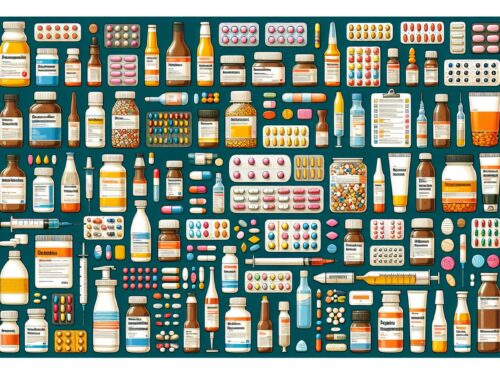
Understanding the Different Types of Medicines
When it comes to healthcare, many of us rely on medicines to alleviate symptoms, cure illnesses, or manage chronic conditions. However, not all medicines are the same. There are several types of medicines, each with its own unique purpose and method of action. In this article, we will explore the different types of medicines and gain a better understanding of how they work to improve our health.
Types of Medicines
1. Analgesics
Analgesics, commonly known as pain relievers, are medicines that help alleviate pain. These medicines can be categorized into two groups: non-opioid analgesics (such as acetaminophen) and opioid analgesics (such as morphine). Non-opioid analgesics are commonly used for mild to moderate pain relief, while opioid analgesics are stronger and reserved for severe pain management. However, it is important to use these medicines responsibly to avoid dependency or addiction.
2. Antibiotics
Antibiotics are medicines used to treat bacterial infections. They work by killing bacteria or preventing their growth. Antibiotics can be broad-spectrum or narrow-spectrum, depending on their range of effectiveness against different types of bacteria. It is crucial to complete the full course of antibiotics prescribed by a healthcare professional to ensure the eradication of the infection and prevent antibiotic resistance.
3. Antidepressants
Antidepressants are medications primarily used to treat depression and certain mental health disorders. They work by balancing chemicals in the brain that affect mood and emotions. Antidepressants can take time to show their full effects, and it is important to consult a healthcare professional before starting or stopping these medications. They should be taken as prescribed and regular follow-ups with a healthcare provider are crucial for effective treatment.
4. Antihistamines
Antihistamines are commonly used to relieve symptoms of allergies, such as sneezing, itching, and watery eyes. They work by blocking the effects of histamine, a chemical released by the body during an allergic reaction. Antihistamines can be classified as first-generation (causing drowsiness) or second-generation (non-drowsy). Depending on the severity of symptoms and individual reactions, healthcare professionals can recommend the most appropriate antihistamine for each person.
5. Antacids
Antacids are medicines used to relieve symptoms of acidity, indigestion, and heartburn. They work by neutralizing excess stomach acid, providing relief from discomfort. Antacids are available over-the-counter and are generally safe for short-term use. However, individuals with underlying health conditions or those on other medications should consult their healthcare provider before using antacids regularly.
Conclusion
Understanding the different types of medicines is crucial in ensuring the safe and effective management of our health. Whether it is relieving pain, treating infections, improving mental health, managing allergies, or soothing common digestive issues, medicines play an essential role in our well-being. However, responsible use, adherence to prescribed doses, and consulting healthcare professionals are key to maximizing the benefits of these medicines while minimizing potential risks. Always remember, medication should never be taken without proper guidance, and self-diagnosis should be avoided. By working closely with healthcare providers, we can ensure that the appropriate type of medicine is chosen for our specific needs, ensuring a healthier and happier life for ourselves and our loved ones.
You May Also Like

A Comprehensive Guide to Different Types of Medicines
February 15, 2024
Understanding Different Types of Medicines
February 16, 2024

